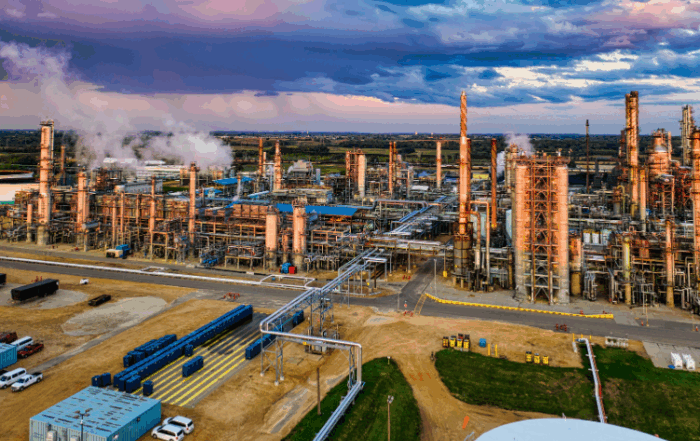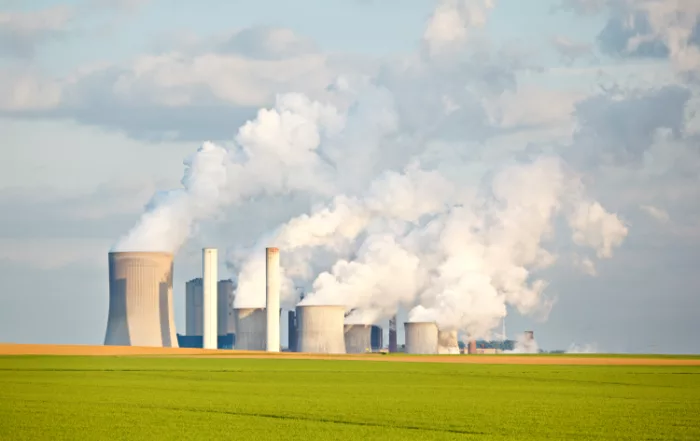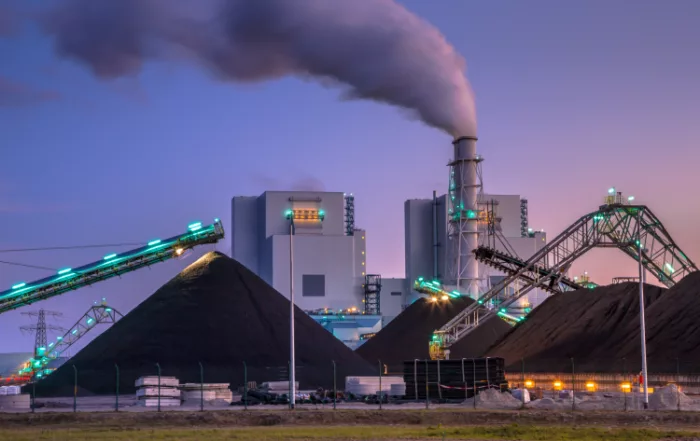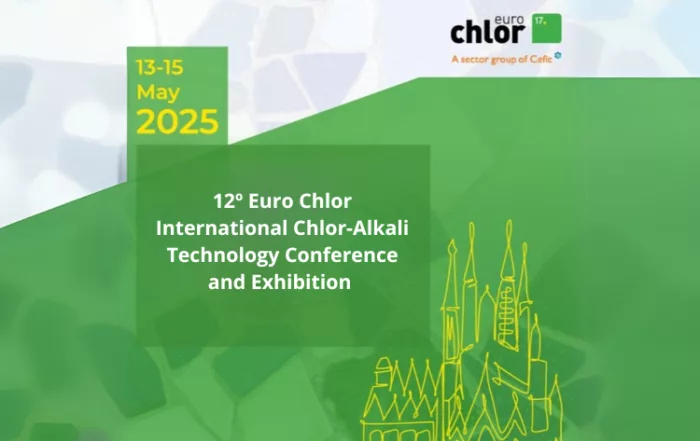

Gas Treatment on Superphosphates Production
The production of phosphate-based fertilizers such as TSP (triplesuperphosphate) or SSP (simplesupephosphate), begins with a first step of attack of phosphate rock in the reactor, the obtained material passes through the Kuhlmann belt, where the reaction continues, ending in the granulator, and finally a drying step. In the four previous stages gas emissions are generated which have to be treated, being in the first two where the intensity and concentration is higher.
The contact of phosphate rock with an acid, normally H2SO4 or H3PO4 generates gaseous emissions. The gases produced are usually (F-) based, resulting from the presence of fluorures in the rock, that during the reaction, are released in the form of HF, SiF4, F2. Also a lot of dust and occasionally H2S and CH3SH are generated. These are the elements to be treated in a gas treatment system.
Two-phase solution
- In a first phase F derivatives and dust are removed through venturi-cyclon systems in series, obtaining as by-products H2SiF6 and SiO2 . This technology allows the recycling of H2SiF6 to the process of rock attack, so the liquid effluents to be treated are minimized. Within this process it is essential to control pH to avoid crystallization problems that could cause clogging of the equipment.
- In case of presence of sulfur derivatives, a second phase is added in which these compounds are neutralized through a chemical scrubber with NaOH and oxidizing agents such as KMnO4 or NaClO.
Principal advantages
- Environmental benefits: F- emissions below 5 mg/Nm3
- Economic benefits: process optimization that allows the generation of by-products that can be reused in the process itself and thus reduce the purchase of reagents.
More information
Give us your contact details and we will advise you on the best solution for your application.
View also
The Critical Chemical Alliance
Europe’s Industrial Comeback Strategy In a decisive move to reinforce industrial resilience and regain sovereignty in key manufacturing sectors, the European Commission has announced the upcoming launch of the Critical Chemical Alliance. This [...]
Industrial gas scrubbing in the metallurgical industry: Efficiency, compliance and sustainability with Tecnium
In the metallurgical sector, industrial gas scrubbing is a key technology to ensure operational sustainability and compliance with increasingly stringent environmental regulations. Smelting, refining, coating, and metal surface treatment processes generate emissions with high [...]
Magnetic coupling pumps: efficiency, safety and sustainability for industry
The magnetic coupling pumps from Tecnium represent one of the most advanced and safest technologies for fluid handling in modern industry. Their seal-less design, high energy efficiency, and resistance to aggressive chemicals make them [...]
How do process pumps work for the chemical industry?
What are process pumps? Process pumps play a vital role in the chemical industry, being essential for the safe and efficient processing of corrosive, abrasive, and sometimes hazardous fluids. These pumps are [...]
Efficiency in gas treatment: The change and evolution towards cleaner processes
Gas treatment technologies for various industries The increasing focus on environmental sustainability has placed the treatment of industrial waste gases at the heart of continuous improvement strategies for many industries. This approach [...]
TECNIUM will participate in Euro Chlor 2025, the international reference event for the chlor-alkali industry
We present our technical solutions for a safer, more efficient and sustainable chlor-alkali industry TECNIUM, a company specialized in pumping, storage and gas treatment technologies for demanding industrial environments, announces its participation in [...]






